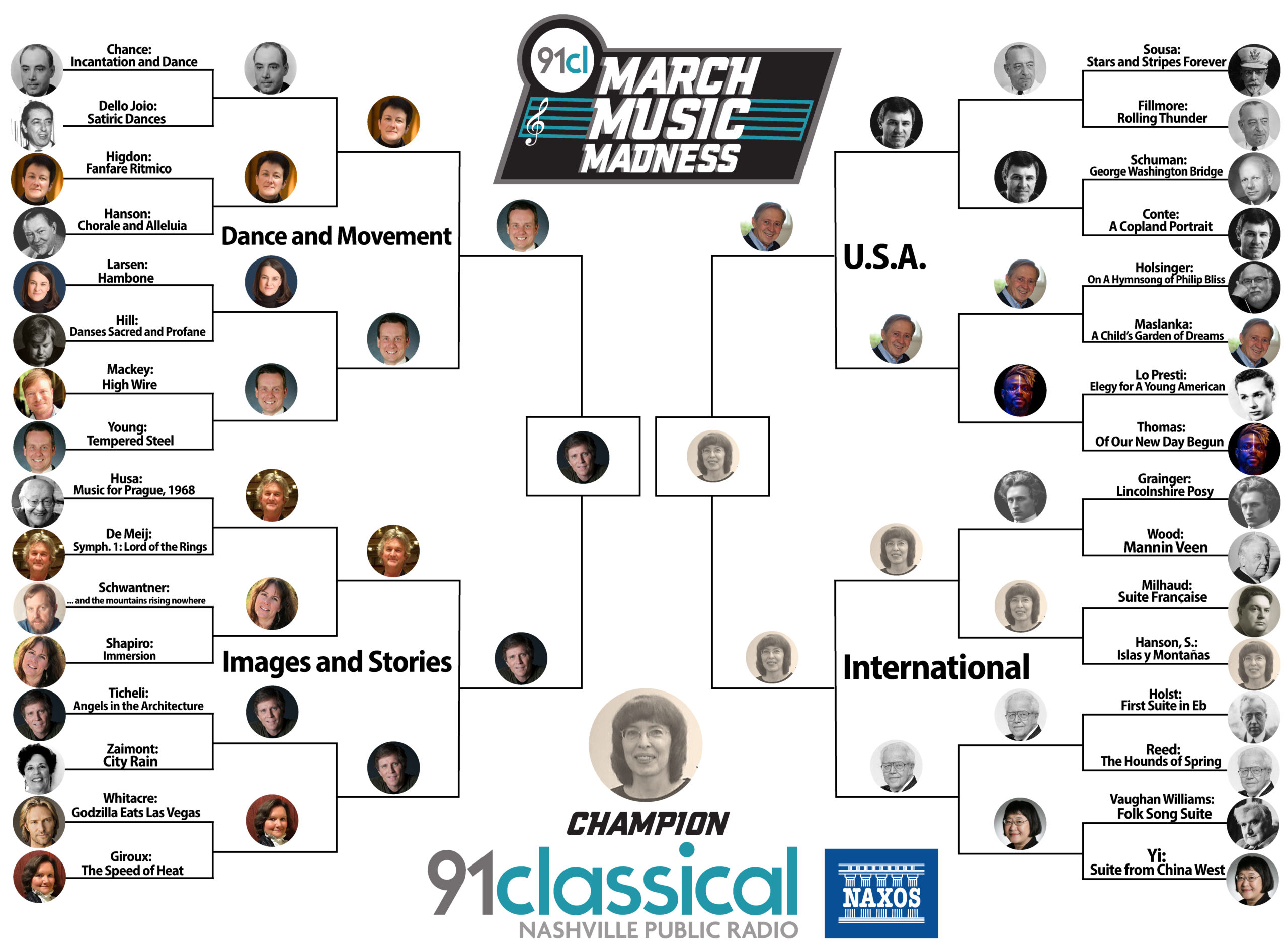
The only sports tournaments the nation is getting right now are reruns, since all major events were canceled due to the coronavirus. That includes the NCAA basketball tournament known as March Madness. But, through our sister station 91Classical, Nashvillians still got to participate in March Music Madness — 32 pieces of music matched up in four “divisions.”
Over the past three weeks, listeners compared the compositions and voted for their favorites in each round. And in the final – in a bit of a surprise – it came down to pieces by two living composers.
91Classical host Colleen Phelps sat down WPLN’s Jason Moon Wilkins to talk about this year’s field. You can listen to their conversation in the audio link above, and hear all the pieces of music featured in this year’s tournament here.
Here’s some tournament analysis:
In the end, the final round was not even close. Shelley Hanson’s musical tour of South America, Islas y Montañas, is the winner.
As ever, the first round of the tournament had its share of surprise with the immediate elimination of our national march, The Stars and Stripes Forever. But the biggest shocks came from outside our classical music-based fun. Just as Nashville began its recovery from devastating tornadoes, concert cancellations rocked the musical community. Then, with orders to stay home, life as we know it has changed in Music City.
We kept the tournament going, hoping that these pieces of music would allow listeners to go on a mental adventures, even when they were stuck within four walls. Hanson has this to say about her win:
“Many thanks to 91Classical for bringing attention to wind ensemble music, which provides a lifelong performance outlet for so many musicians world-wide — students as well as adult community band members. I am honored to have been part of this tournament and am glad that these pieces have brought some enjoyment to listeners.”
Hanson wrote the piece as a commission for Manny Laureano, a Minnesota-based trumpet player who directs the Minnesota Youth Orchestra. The two agreed that Latin American music was underrepresented in large ensemble repertoire in the United States. So, Hanson was sure to quote actual Quechua and Jibaro folk songs. She also mixed in music by a composer lost before his time to a political assassination — Alejandro Garcia-Caturla. In all, the piece gives a tour of Latin America in music.


